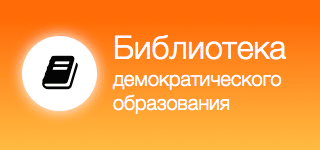Russian NGO leader discusses philanthropy and community schools
- Author / organization: Interview by Maggie I. Jaruzel, Ch. S. Mott Foundation
- August 4, 2006 Added by Фомина Елена Юрьевна Views: 2105
- Topics: School Community Partnerships
- Document type: Article, Review, Research
Andrey Kortunov is the president of the New Eurasia Foundation, a Mott grantee based in Moscow. Kortunov recently visited Mott’s Flint office and discussed New Eurasia’s work with Communications Officer Maggie I. Jaruzel.
Andrey Kortunov is the president of the New Eurasia Foundation, a Mott grantee based in Moscow. The Foundation was established in 2004 through an American-European-Russian partnership to foster effective social and economic development in Russia. Kortunov recently visited Mott’s Flint office and discussed New Eurasia’s work with Communications Officer Maggie I. Jaruzel.
Mott: Describe the field of philanthropy in Russia today.
Andrey Kortunov (AK): Ten years ago the country was poor. The state was almost incapacitated in several areas so many programs were funded by foundations. Secondly, we didn’t have any indigenous grantmaking so Russian NGOs [non-governmental organizations] depended 100 percent on outside funding.
If you look at the situation today, you can see the differences. The country is getting wealthier, the state is getting more active, and it is also getting back into funding certain social areas.
We've seen a very rapid development of corporate foundations. Right now we have some large foundations, but also plenty of medium-sized foundations. Corporate philanthropy is an important phenomenon and it is growing. But wealthy people and big businesses are very cautious about their activities. They limit their sense of social responsibility to their immediate geographical environment, saying, “We are building a hospital or funding a public school. We are helping the local government by subsidizing their municipal budget.”
Russian philanthropy is growing in its own way, which might be different from mature private foundations in the West because most Russian donors are still alive. They are young and they want to be involved.
Mott: What is your reaction to recent Russian legislation that mandates NGOs to re-register with the government and allows officials to halt programs they deem problematic?
AK: This recent legislation was guided by two major beliefs. First, there are people in the Kremlin who believe -- I think wrongly -- that civil society in Russia can be built only from the top down. They think the money should be coming from the state primarily. The second assumption is that any foreign money that is not specifically earmarked is suspicious. It might be used for some undesirable growth or some subversive action which runs against Russian interests. I’m concerned about the ambiguity that the law contains, which opens doors for arbitrary and selective interpretations.
One can argue that no matter what you do election monitoring or human rights defense -- you can politicize an issue, especially the really burning, socially significant issues. A lot depends on implementation of the law and we are waiting to see what that looks like. This law is not the end of the world, but it is indicative of a trend showing that the state wants to control NGO activities.
Mott: Why does New Eurasia support the growth of community schools in Russia?
AK: Schools have always been very important in Russia as the center for community activities. After the communist revolution, formal community centers were met with suspicion, but the local school remained one of a few respected institutions. Russian tradition gives a high level of respect to education and teachers. Education is viewed as neutral and less corrupt than other institutions.
Small rural schools are very important so there has been great opposition to closing them down. When you close a rural school, you destroy a community. A community can live without a drugstore, it can live without a lot of other things, but it cannot live without a school. Nowadays, schools appear to be one of the most resilient and stable institutions in the country so Russians stick by their schools.
Quite often, a school library is the only library a village has. If you want to get books or periodicals, you go to the school. If you want to have some kind of cultural event, sometimes the school is the only place where you can do that. Therefore, our inclination is to develop this concept of community schools and to welcome what, in our view, is something that helps assist what is natural for us. We want to accept new opportunities, build networks, exchange best practices, and share our experiences with schools in other regions where they don’t have such practices.
Mott: What is it about the community school concept that resonates with people throughout Central and Eastern Europe, and the former Soviet Union?
AK: It’s simple. All of us have kids and all of us are concerned about their education. In this part of the world, education was traditionally perceived as a very important asset. Also, it is very indicative of the intense hunger for collective action. People really do want to work collectively. They understand that they cannot manage their problems alone. I don’t want to create too rosy of a picture because there is corruption and mismanagement and there are abuses of power in schools, but community schools are needed.
There are not too many social institutions that can compete with schools in terms of the value, stature and prestige. The community school is an idea whose time has come, especially because it wasn’t something that was implanted here in Russia. The ideas from the outside just helped unleash our natural trends.
Imprint
The Mott Foundation web-site, http://mott.org/news/detail.asp?newsid=455





